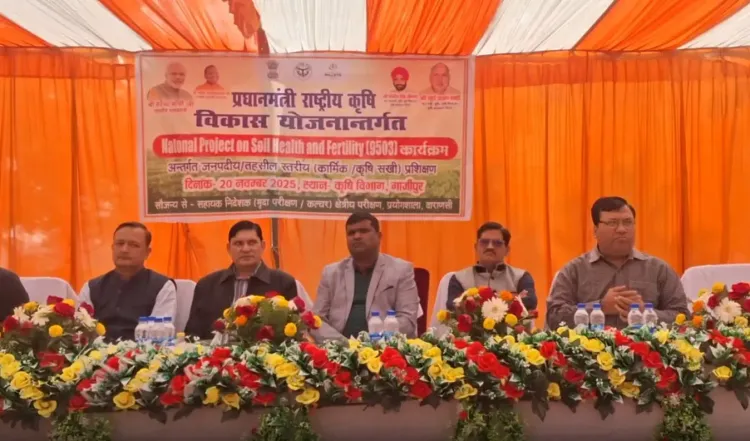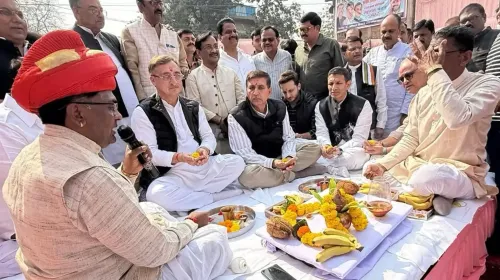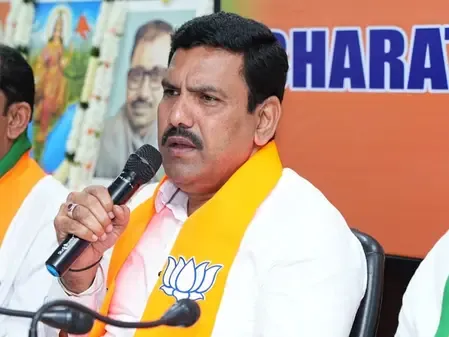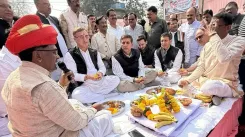How Can Soil Testing Benefit Farmers Under PM-RKVY?

Synopsis
Key Takeaways
- Soil testing provides essential insights for optimal crop yields.
- Promotes sustainable agriculture through informed practices.
- Helps farmers reduce fertilizer costs by applying the right amounts.
- Involves agricultural scientists for expert guidance.
- Supports food security and agricultural self-sufficiency.
Lucknow, Nov 20 (NationPress) Assessing and testing soil health prior to sowing crops provides vital information regarding the essential nutrients needed for a successful harvest. It also guides farmers on how to mitigate losses by enriching the soil with necessary nutrients at the appropriate time.
Taking proactive measures enhances farming profitability and yields greater rewards.
The Agriculture Department organized a dedicated camp in Ghazipur, Uttar Pradesh, to educate farmers about soil testing as part of the PM Rashtriya Krishi Vikas Yojana (PM-RKVY).
Farmers learned about the advantages and disadvantages of soil testing and the necessity of involving agricultural scientists for timely support.
Rajeev Rai, Assistant Director of Soil Testing from Varanasi, who participated in the event, stated that the government has set a target to conduct soil tests before the sowing of Kharif and Rabi crops.
“Soil samples from approximately 22,000 fields were collected prior to Kharif sowing, and after testing, cards were distributed to farmers. The department now aims for 9,600 soil tests for Rabi cultivation, selecting 20 Gram Panchayats per block for this initiative,” he mentioned.
“In this regard, soil samples from 100 plots will be gathered and analyzed,” he added.
This initiative aims to help farmers comprehend their soil's health and boost productivity.
Farmers often resort to excessive use of chemical fertilizers, causing increased costs. However, soil testing enables them to learn the correct application of fertilizers, including nitrogen, phosphorus, and potash.
The PM-RKVY scheme, along with the Krishonnati Yojana (KV), fosters sustainable agriculture while addressing issues related to food security and agricultural self-sufficiency.
The scheme provides state governments with the flexibility to redistribute funds across different components according to their specific needs.









